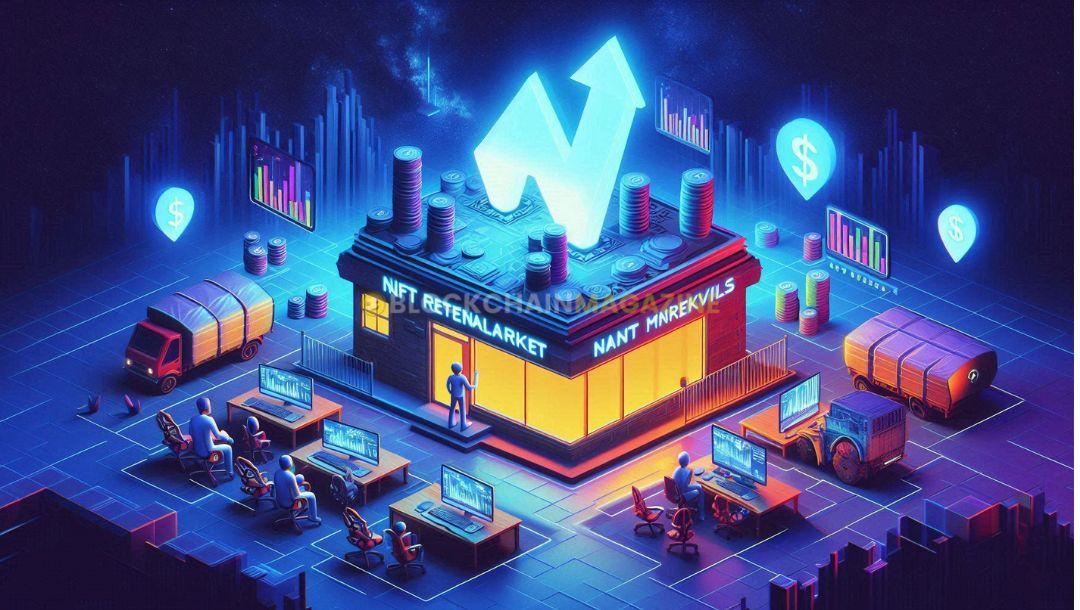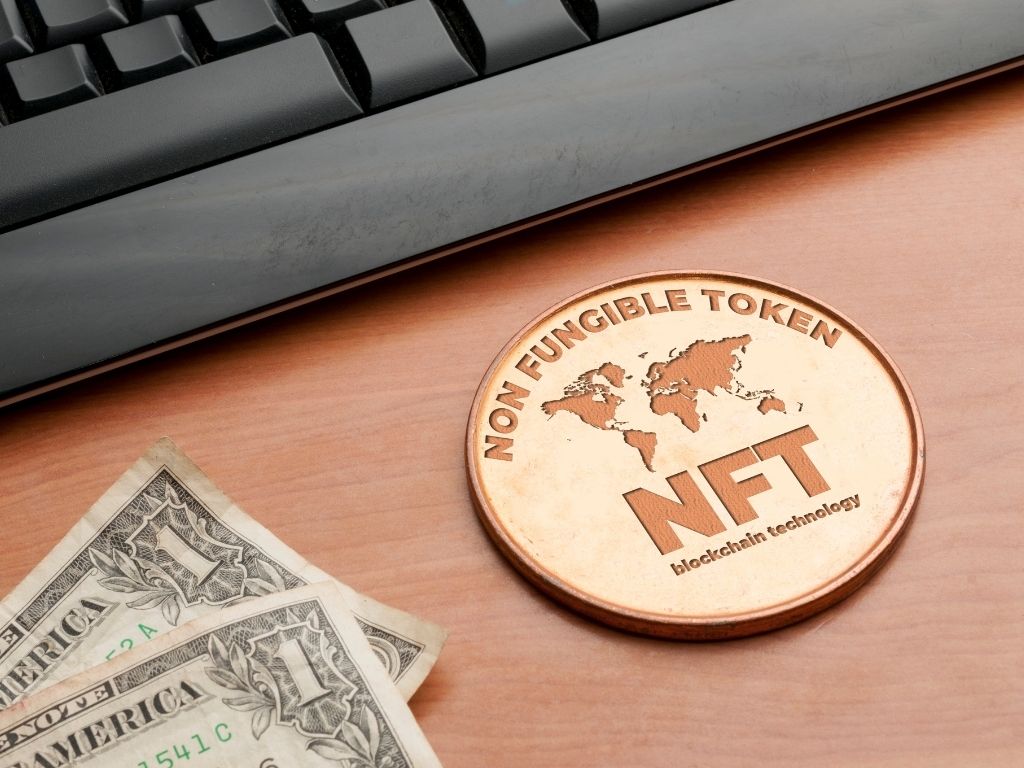NFT Rental Markets: How Rentable NFTs Are Creating New Revenue Streams for Holders In 2024
The explosive growth of the NFT (Non-Fungible Token) market has opened up new possibilities for creators, collectors, and investors alike. Originally, NFTs were primarily associated with digital art, music, and collectibles. However, as the market has evolved, so have the ways in which NFTs can be used to generate revenue. One of the most promising and rapidly emerging trends in this space is the NFT rental market—a model that allows NFT holders to rent out their assets, creating new revenue streams and enhancing the utility of digital assets.
As the NFT ecosystem matures, the concept of renting out NFTs is gaining traction in sectors like gaming, virtual real estate, and intellectual property. This article explores how rentable NFTs are reshaping the digital asset landscape, the technology behind NFT rentals, the potential benefits for holders, and the challenges the market may face as it continues to evolve.
Understanding NFT Rental Markets
At its core, an NFT is a unique digital asset that represents ownership of a specific item, whether that be digital art, music, virtual real estate, in-game assets, or intellectual property. The value of NFTs often comes from their scarcity, provenance, and the utility they provide in various online ecosystems. However, owning an NFT doesn’t necessarily mean that the asset is being fully utilized. For instance, a rare gaming item or a virtual plot of land in a metaverse may sit idle in a digital wallet without generating any returns.
This is where NFT rental markets come into play. By allowing NFT holders to rent out their assets for a specified period of time, these markets enable owners to generate passive income without having to sell the asset outright. Meanwhile, renters gain temporary access to high-value NFTs that they might not be able to afford otherwise.
The rental model mirrors traditional markets like real estate or luxury goods leasing, but it is tailored to the unique characteristics of digital assets and blockchain technology. Rentable NFTs can be applied to various use cases, including:
- In-game assets: Gamers can rent NFTs like rare skins, weapons, or characters to improve their performance or enhance their experience in virtual worlds.
- Virtual real estate: Owners of virtual land in metaverse platforms like Decentraland or The Sandbox can rent out plots to other users for events, virtual stores, or advertising.
- Intellectual property: Creators can license their work (art, music, or videos) through NFT rentals, allowing others to use the content temporarily without transferring full ownership.
The Technology Behind Rentable NFTs
The ability to rent NFTs hinges on the use of smart contracts, which are self-executing code on a blockchain that enforce the terms of a transaction without the need for intermediaries. In the case of NFT rentals, smart contracts ensure that the rental period, payment, and return of the NFT are automatically handled in a transparent and secure manner.
Here’s a simplified breakdown of how the technology works:
- Creation of Rentable NFTs: The original NFT owner decides to make their asset rentable by locking it into a smart contract. The contract defines the terms of the rental, including the rental period, price, and any usage restrictions.
- Marketplace Listing: The NFT is listed on an NFT rental marketplace, where potential renters can view available assets, check prices, and make rental offers.
- Execution of the Smart Contract: Once a renter agrees to the terms, the smart contract is executed. The renter pays the rental fee (often in cryptocurrency), and in return, they gain temporary access to the NFT for the specified period.
- Return of the NFT: At the end of the rental period, the NFT automatically reverts to the original owner, as specified in the smart contract. The renter loses access to the NFT, and the owner retains full control of the asset.
- Revenue Distribution: The rental fee is either automatically transferred to the NFT owner’s wallet or held in escrow by the smart contract until the end of the rental term, ensuring security for both parties.
Some platforms are also experimenting with governance features, where owners and renters can vote on terms or suggest modifications to the rental model, further decentralizing the process.
Also, read – NFTs in 2024: Intriguing Lessons from the Past, Insights for the Future
Key Players in the NFT Rental Ecosystem
Several platforms have emerged to facilitate the rental of NFTs, creating decentralized marketplaces where owners and renters can transact seamlessly. Here are some of the leading platforms and their use cases:
- ReNFT: A decentralized protocol that enables NFT holders to rent out their digital assets. ReNFT supports various NFTs, including gaming items, digital art, and virtual real estate. Its smart contract system ensures that assets are returned to the owner after the rental period expires.
- UnitBox: UnitBox focuses on the gaming sector, allowing players to rent in-game assets such as rare items, characters, or skins. The platform uses smart contracts to manage the rental process, ensuring that assets are returned on time and that the owner receives rental fees.
- Double Protocol: A cross-chain NFT rental marketplace, Double Protocol allows users to rent virtual real estate, in-game assets, and other NFTs across multiple blockchain networks. The platform offers flexible rental terms and integrates with popular metaverse environments like Decentraland and The Sandbox.
- LandVault: Specializing in virtual land, LandVault allows users to rent out plots in metaverse platforms for commercial purposes. Renters can use the land for hosting events, creating virtual storefronts, or advertising, while owners earn passive income from their properties.
These platforms have simplified the rental process by offering easy-to-use interfaces and transparent smart contract protocols. As the market for rentable NFTs continues to grow, more specialized platforms and protocols are likely to emerge.
The Benefits of Rentable NFTs
Rentable NFTs offer numerous advantages for both NFT holders and renters, making them a compelling solution in the rapidly expanding digital economy. Here are some of the key benefits:
1. Passive Income for NFT Holders
For NFT holders, renting out their assets provides an additional revenue stream without having to part with ownership. This is especially valuable for high-value NFTs that are in demand but may not be in constant use. By renting out these assets, holders can monetize their investments, generating ongoing income while retaining long-term ownership.
For example, a gamer who owns a rare in-game asset can rent it out during times when they’re not playing, creating passive income opportunities. Similarly, a virtual landowner can rent out their property for advertising or events, earning rental fees while holding onto the asset for potential appreciation.
2. Increased Accessibility for Renters
Rentable NFTs democratize access to high-value digital assets, allowing users who cannot afford to purchase an expensive NFT outright to still enjoy its benefits. For instance, in gaming, a player might not have the funds to buy a rare item or character, but they can rent it for a limited time to enhance their gameplay or compete in tournaments.
Similarly, in the metaverse, users can rent virtual land or properties to host events, build businesses, or showcase digital art without needing to buy the land outright. This accessibility helps foster creativity, innovation, and participation in the digital economy.
3. Enhanced Utility and Asset Liquidity
NFTs are often seen as static digital assets that either sit in a wallet or are sold for a profit. However, rentable NFTs add a dynamic layer of utility by making these assets more functional and liquid. Instead of being locked away, NFTs can be actively used and traded in rental markets, which keeps them circulating within the digital economy.
This increased utility can also help NFT holders unlock the latent value of their assets. Rather than waiting for the perfect time to sell, holders can capitalize on their assets in the meantime by renting them out, creating a more liquid market for NFTs.
4. Short-Term Engagement Opportunities
For businesses, creators, and brands, renting NFTs offers new engagement strategies. A company might rent out branded virtual land or exclusive digital items to build a temporary presence in the metaverse or collaborate with influencers. In this way, NFTs can be used for short-term campaigns or events, providing flexibility that traditional ownership models don’t offer.
Creators can also rent their intellectual property, such as digital art or music NFTs, for limited-time use in virtual galleries or online exhibitions, offering new revenue streams while keeping the rights to their original work.
Challenges Facing the NFT Rental Market
While NFT rental markets offer exciting opportunities, there are several challenges and potential roadblocks that need to be addressed for widespread adoption and long-term success.
1. Security Risks
One of the main concerns in the NFT rental space is security. Since NFTs can hold significant value, the risk of exploitation or misuse during the rental period is a valid concern for asset owners. For instance, a rented gaming item might be used in ways that diminish its value, or digital artwork could be misappropriated during the rental period.
To mitigate these risks, platforms need to implement robust smart contract protocols and offer insurance mechanisms to protect both owners and renters. Escrow systems can also ensure that funds are held securely until the rental agreement is fulfilled.
2. Legal and Regulatory Uncertainty
NFTs, including rentable NFTs, are a relatively new concept, and legal frameworks surrounding digital assets are still evolving. Regulatory uncertainty regarding intellectual property rights, taxation, and contract enforcement can pose challenges for NFT rental markets, especially when assets are rented across different jurisdictions.
Rentable NFTs, particularly in sectors like intellectual property or virtual real estate, may require clear legal guidelines to ensure compliance with local laws. Additionally, as NFTs grow in popularity, governments may impose regulations on rental agreements, tax implications, and asset ownership.
3. Determining Fair Rental Prices
The question of how to determine fair rental prices for NFTs is still an evolving challenge. Since NFT valuations can fluctuate rapidly due to market trends, determining a fair rental fee that reflects the asset’s value and utility is critical for both parties involved. Rental markets may need to adopt dynamic pricing models or employ decentralized oracles to ensure that rental fees accurately reflect market conditions.
4. User Education and Adoption
Many users, particularly those unfamiliar with blockchain technology, may find the NFT rental process intimidating or confusing. Platforms need to prioritize user education and offer simple, intuitive interfaces to onboard new users. Additionally, educating users about the benefits and risks of NFT rentals will be essential for driving widespread adoption.
The Future of NFT Rental Markets
As the NFT space continues to evolve, rental markets are likely to play a significant role in unlocking the full potential of digital assets. In 2024 and beyond, we can expect the following trends to shape the NFT rental market:
- Expansion Across Multiple Sectors: While NFT rentals are currently most prominent in gaming and virtual real estate, other sectors like entertainment, intellectual property, and digital fashion are expected to explore rental models. Artists and creators may increasingly rent out their work for limited-time use, while businesses could rent branded NFTs for marketing and engagement purposes.
- Integration with DeFi and DAOs: The integration of NFT rentals with decentralized finance (DeFi) protocols could create new financial products and opportunities. For example, fractionalized ownership of NFTs might allow multiple users to share in the rental income of a high-value asset. Additionally, DAOs (Decentralized Autonomous Organizations) could govern NFT rental markets, allowing community members to vote on pricing, terms, and rules.
- Greater Focus on Utility and Interoperability: Rentable NFTs will likely continue to emphasize utility, allowing users to actively engage with their assets in virtual environments, games, and metaverse platforms. Interoperability between different blockchain networks and platforms will also become more important, allowing NFTs to be rented and used across a wider range of ecosystems.
- New Revenue Models for Creators: For creators, NFT rentals offer new ways to monetize their work without losing ownership or control. As more artists, musicians, and developers enter the NFT space, rental models could provide an ongoing revenue stream, allowing creators to license their work for short-term use in virtual worlds, galleries, or digital performances.
Conclusion
NFT rental markets represent a natural evolution in the broader NFT ecosystem, creating new revenue opportunities for asset holders while offering greater accessibility to renters. With the ability to rent NFTs, holders can unlock the full potential of their digital assets, generating passive income while retaining ownership.
Rentable NFTs are reshaping industries like gaming, virtual real estate, and intellectual property, offering innovative solutions for businesses, creators, and individuals to engage with digital assets. While challenges such as security risks, regulatory uncertainty, and price determination remain, the potential for NFT rentals to become a mainstream market is undeniable.
As the NFT space matures and more platforms embrace rental models, the concept of rentable NFTs could become a cornerstone of the digital economy, driving innovation, inclusivity, and new forms of ownership in the Web3 era.
Stay informed with daily updates from Blockchain Magazine on Google News. Click here to follow us and mark as favorite: [Blockchain Magazine on Google News].
Get Blockchain Insights In Inbox
Stay ahead of the curve with expert analysis and market updates.
latest from tech
Disclaimer: Any post shared by a third-party agency are sponsored and Blockchain Magazine has no views on any such posts. The views and opinions expressed in this post are those of the clients and do not necessarily reflect the official policy or position of Blockchain Magazine. The information provided in this post is for informational purposes only and should not be considered as financial, investment, or professional advice. Blockchain Magazine does not endorse or promote any specific products, services, or companies mentioned in this posts. Readers are encouraged to conduct their own research and consult with a qualified professional before making any financial decisions.

 Bitcoin
Bitcoin  Ethereum
Ethereum  Tether
Tether  XRP
XRP  Solana
Solana  Dogecoin
Dogecoin  USDC
USDC  Lido Staked Ether
Lido Staked Ether  Cardano
Cardano  TRON
TRON  Avalanche
Avalanche  Chainlink
Chainlink  Toncoin
Toncoin  Wrapped stETH
Wrapped stETH  Shiba Inu
Shiba Inu  Sui
Sui  Wrapped Bitcoin
Wrapped Bitcoin  Hedera
Hedera  Stellar
Stellar  Polkadot
Polkadot  WETH
WETH  Hyperliquid
Hyperliquid  Bitcoin Cash
Bitcoin Cash  LEO Token
LEO Token  Uniswap
Uniswap  Litecoin
Litecoin  Pepe
Pepe  Wrapped eETH
Wrapped eETH  NEAR Protocol
NEAR Protocol  Ethena USDe
Ethena USDe  Aave
Aave  USDS
USDS  Internet Computer
Internet Computer  Aptos
Aptos  POL (ex-MATIC)
POL (ex-MATIC)  Cronos
Cronos  Mantle
Mantle  Ethereum Classic
Ethereum Classic  Render
Render  Bittensor
Bittensor  WhiteBIT Coin
WhiteBIT Coin  Monero
Monero  MANTRA
MANTRA  Artificial Superintelligence Alliance
Artificial Superintelligence Alliance  Dai
Dai  Arbitrum
Arbitrum  Filecoin
Filecoin 



